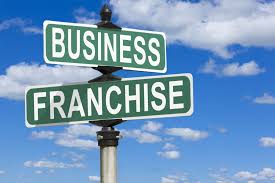Most individuals dream of one day being their own boss, but find themselves intimidated by the prospect of quitting their day job. Contrary to popular belief, one does not need a revolutionary idea like Jeff Bezos with Amazon or Elon Musk with Tesla to retire that old nine to five. Franchising offers a type of entrepreneurial opportunity that tens of thousands of American’s utilize to quit their day jobs and own their own business. Introduction to Franchise Basics in Georgia.
One in seven businesses operating in the U.S. today incorporate some form of franchise. It is a business model that allows those without revolutionary ideas operate under the support of a corporate banner while simultaneously calling the shots and being in business for themselves.
The most common type of franchise is business format franchising, where in return for operating in conformity to rules laid out in a Franchise Agreement by a corporate franchiser, the franchisee or small business owner, is provided a full range of services and support by the corporation to offer them the best shot at maintaining a successful business.
The business model is simple. The corporation (franchiser), lends the expertise of their successful and established business practice to a would be entrepreneur (franchisee) for a fee or royalty on the profits. Both have a stake in the success of the business venture, so both work together to turn a profit. This works too, as statistics show that licensees of franchises are more successful on average than those starting a business in the same industry by themselves.
Because franchising has become big business, there are regulations in place to govern the relationship. Georgia residents should know that the state is not a franchise regulation state, meaning there is no fee or paperwork to file with the Georgia Secretary of State. The Federal Franchise Rule and the Georgia Franchise Act, however, still govern rules in the state.
The Federal Franchise Rule is a regulation governing the relationship between a franchisor and a franchisee. Written in very friendly terms to the franchisee, it takes into account that this individual is a far less sophisticated than the large corporation they are doing business with. The rule writes in protections for deceptive practices and aims to facilitate informed decisions through mandatory disclosures.
One such document driving these disclosures is the Federal Disclosure Document (FDD). This document requires franchisors to disclose to the franchisee at least 14 days before the sale, information needed to make an educated decision on the purchase. This document includes a wealth of information, but most importantly outlines the start-up costs needed to support the business, as well as empirical data showing realistically what the franchisee can expect to earn from the venture. These documents can run up to 200 pages, so it is important to be thorough and know fully the agreement that entered into.
Another document required by the Federal Franchise Rule is the actual Franchise Agreement itself. This is the contract between the two would be partners that details the actual operational agreement. It will include provisions that both parties understand the elements of the FDD, material terms of who owns what assets and the extent of the licensing agreement, as well as the length of the agreement. As with any other contract, this governs the operation of the business, so it is best to leave the negotiations to attorneys with experience in evaluating Franchise Agreements so that they can negotiate substantive changes to protect your interests.
As stated above, while there is no requirement for franchises to register or file FDD documents in the state, there still exists the Georgia Franchise Act. This act, while less expansive than the federal rule, defines what businesses qualify as a franchise in the state, as well as several terms important to franchise relationships such as franchise fee, franchisor, sub franchisor, etc. The act also controls how actions such as transfer, termination, and renewal occur within the state.
Franchising in the state of Georgia offers a promising business opportunity, but can also become extremely complex. If you are working towards the purchase of a franchise, or simply have questions about the process, give us a call! Thrift McLemore’s attorneys are well versed in drafting franchising agreements as well as post agreement support as you get your Georgia franchise off the ground. Contact Thrift McLemore by email at info@thriftlegal.com or by phone at 678-784-4150 to discuss how we can help you today!






